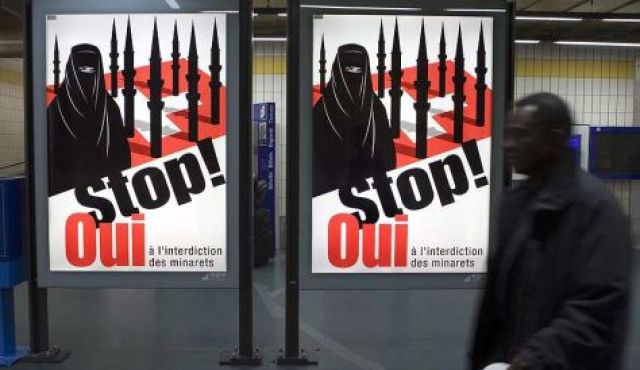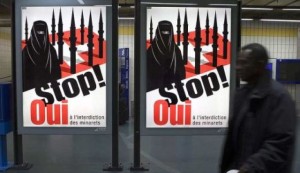By Mabel Berezin
Responding to the massacre at the French satirical magazine Charlie Hebdo, President Barack Obama and other public figures such as John Kerry, author Salman Rushdie — even the far-right nationalist French politician Marine Le Pen — have defended the right to freedom of expression as a core democratic value. Huge demonstrations in solidarity with the victims are occurring throughout France and in many European capitals.
The slogan “Je suis Charlie Hebdo” is circulating widely in social media. Twitter is inundated with tweets about the political power of satire. Pictures of demonstrators holding pens in the air abound.
The political mood in Europe has been growing dark. Volatility is becoming more and more constant. In December, the Swedish government went into a crisis triggered by the right nationalist Sweden Democrats, which are vehemently opposed to more immigration and whose leader recently proclaimed that Jews, Kurds and Sami were not Swedish unless they assimilated. A last-minute compromise among the major parties saved the day in Sweden, but the Sweden Democrats — whose electoral share went from 6% in 2010 to 13% in 2014 — are not leaving the scene.
In Greece, where the openly neo-Nazi party Golden Dawn has been in the parliament since 2012, the pro-Europe government came apart and the Prime Ministerhas called snap elections for January 25. In Germany, a group called Pegida staged large demonstrations in Dresden against the “Islamification of Europe.” Prime Minister Angela Merkel in her New Year’s address told the group to stop its demonstrations, but Pegida staged another one in Dresden anyway.
And now France.
Le Pen’s goal since she became head of the National Front in 2011 has been to make it a mainstream party. In 2014, it moved from one electoral breakthrough to another. In March it won mayoral races in four French municipalities, including the traditionally socialist city of Hénin-Beaumont. In May, it came in first place in the European parliamentary elections — which saw an uptick in the fortunes of right nationalist parties throughout Europe.
Le Pen has consistently polled well as a contender in the 2017 French presidential elections. Even before the Charlie Hebdo attack, it was more than likely that she would make it to the second round in 2017. In an October public opinion poll, she outpolled French President François Hollande by 15 percentage points. Her closest rival was former French President Nicolas Sarkozy, and she outpolled even him.
The international media often present her as a single-issue candidate around xenophobia and immigration, but Le Pen’s and the Front’s positions have expanded considerably. Her father, Jean-Marie Le Pen, the former head of the party, began a strong push against further European integration and French involvement in the Economic and Monetary Union. Unemployment outpaces immigration as the leading problem in public opinion polls.
But politicians take opportunities where they see them, and voters tend to remember dramatic events as well as everyday grievances. Nothing could be more dramatic than the public killings of 12 persons in the center of Paris.
They may well become a tipping point — Europe’s 21st-century version of a Sarajevo moment. Europe has been convulsing for the last few years. The sovereign debt crisis, the high youth unemployment rates, the failure to come up with a just and reasonable refugee policy — all these issues may crystalize around of the event in Paris whether they are directly related or not.
The nationalist right has been gaining strength all over Europe on just these issues. The Charlie Hebdo massacre will not only help Marine Le Pen but will be a boon to nationalist parties throughout Europe. From north to south, ordinary European citizens are already voting for parties that they had shunned in the past. If this trend continues, there will be no guns of August — just the silent assault of one nationalist electoral success after another.







